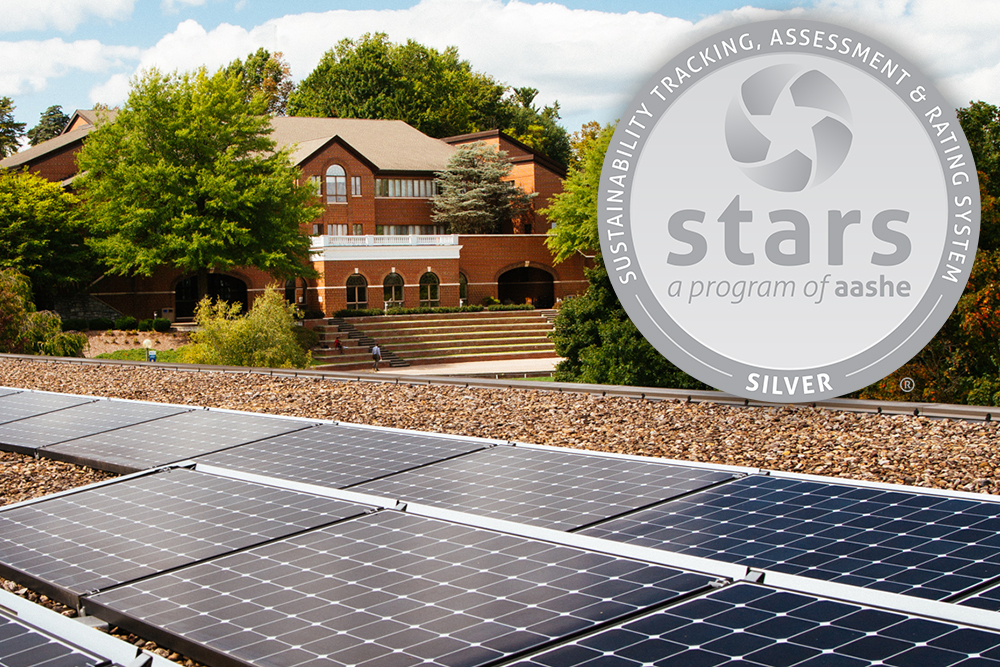Eastern Mennonite University has earned a second consecutive “Silver” rating for its sustainability efforts from the Association for the Advancement of Sustainability in Higher Education (AASHE).
To earn the rating, institutions must submit materials through AASHE’s Sustainability Tracking, Assessment and Rating System (STARS) every three years. EMU first received the award in 2014.
STARS recognizes sustainability efforts by universities around the world in three focus areas: curriculum and research; operations; and planning, diversity and engagement. It defines sustainability as “encompassing human and ecological health, social justice, secure livelihoods, and a better world for all generations.”
“Institution-level innovation is a vital component of environmental stewardship and addressing ever-growing concerns about climate change,” said Professor Doug Graber Neufeld, director of the Center for Sustainable Climate Solutions. “The steps EMU has taken provide a strong foundation for the ongoing work of increasing sustainability.”
In recent years the university developed a Climate Action Plan. It was also recognized for its work on a collaborative nitrogen footprint study, said Jonathan Lantz-Trissel, who as EMU’s former sustainability coordinator led the months-long reporting process for both the 2014 and 2017 STARS ratings.
The report is “a useful tool for self evaluation and directing further efforts,” said Gregory Sachs, EMU’s building automation coordinator, including collaboration “with the broader church, community and beyond to mitigate the global effects of climate change, particularly for the most vulnerable.”
On its extensive 2017 application, EMU reported these and many other sustainability efforts:
- Eighty-nine percent of its academic departments offer sustainability courses, with at least one sustainability-focused degree at both the undergraduate and graduate levels, and a quarter of research-producing departments engage in sustainability research.
- Four active student groups focus on sustainability: Earthkeepers, the Sustainable Food Initiative, Peace Fellowship and DivestEMU. (A fifth group, the Coalition for Climate Justice, is also now active.)
- The campus boasts five gardens that raise produce for the campus.
- Facilities improvements included lighting upgrades, the installation of efficient heat pumps, and window switches that disable heating and cooling to individual rooms when windows are opened.
EMU’s 2014 rating was in part for its three LEED gold-certified residential halls, the massive solar array on the Hartzler Library, and its recycling program. At the time it represented seven years of sustainability efforts, both grass-roots activism on campus and the 2007 adoption of education for sustainability as a re-accreditation requirement. EMU is accredited by the Southern Association of Colleges and Schools Commission on Colleges.
